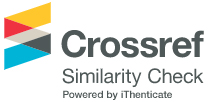一些植物用作尼日利亚调味品和香料的抗菌活性
B. Boboye.1*,T. Babatunde.1和A. Onoriode.1
1微生物学系,联邦理工大学,Akure,P. M. B. 704 ondo州尼日利亚。
DOI:http://dx.doi.org/10.12944/cwe.2.2.11
该实验的目的是确定大蒜,姜,洋葱,罗勒,甜味和辣椒,甜味辣椒,甜点辣椒,在一些人致病菌(Klebsiella肺炎,粪孢菌,芳香杆菌菌,铜绿假单胞菌和大肠杆菌)上的抗菌作用。通过使用水并通过琼脂扩散方法在致病细菌上测试植物的粗略和过滤的提取物。所有香料和调味品都显示出不同的抗菌作用。大蒜最有效;其提取物抑制所有测试微生物的生长,其中抑制区域为2-10mm。洋葱的提取物杀死了KL。肺炎,科雷普。粪便和大肠杆菌。洋葱的粗萃取症被抑菌抑制了乌里安。白喉和ps。 aeruginosa from growing. It was observed that all the tested organisms except Kl. pneumoniae and Strep. faecalis did not grow in the presence of ginger. Also, filtered extract of the ginger did not inhibit the growth of the E. coli. Basil did not stop the growth of the organisms except Strep. faecalis. Extracts of sweet and hot peppers appeared inhibitory although crude extract of the former plant did not prevent the growth of Kl. pneumoniae. Boiled sweet pepper extract did not stop Coryne. diphtheriae from growing. Filtered extract of hot pepper killed Coryne. diphtheriae but did not show any zone of inhibition on other microorganisms.
复制以下内容以引用本文:
Boboye B,Babatunde T,Onoriode A.一些植物用作尼日利亚调味品和香料的抗菌活动。Curr World Environ 2007; 2(2):171-174 Doi:http://dx.doi.org/10.12944/cwe.2.2.11
复制以下内容以引用此URL:
Boboye B,Babatunde T,Onoriode A.一些植物用作尼日利亚调味品和香料的抗菌活动。Curr World Environ 2007; 2(2):171-174。可从://www.a-i-l-s-a.com/?p=673.
[HTML全文]

这项工作是在授权下获得的Creative Commons attage 4.0国际许可证。








